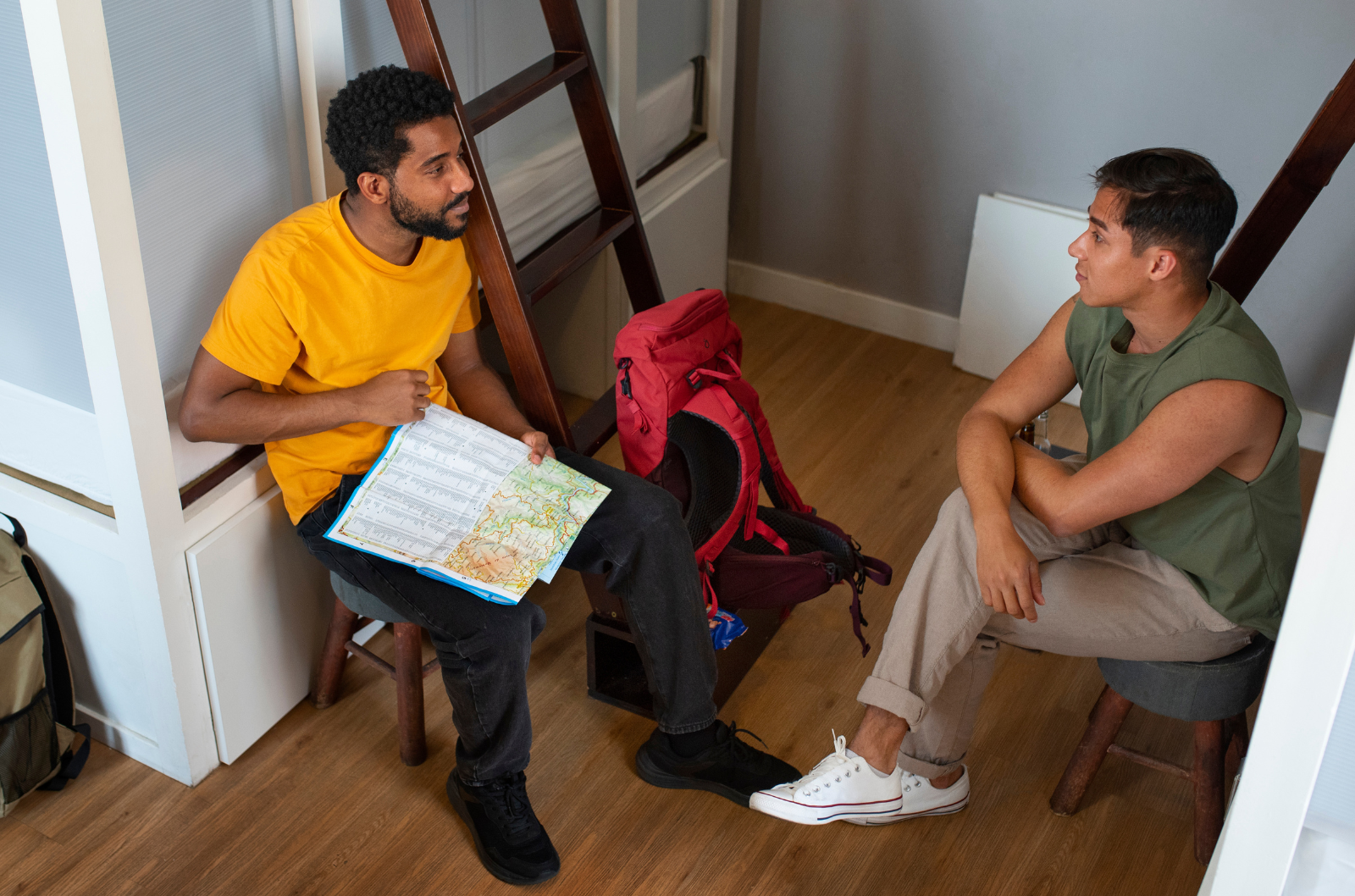- Obtain Your Travel Visa
- Get Health Checks
- Navigating the Home Search Process
- Evaluate the Cost of Living
- Nurturing Your Children’s Future
- Relocating Your Beloved Pets
- Organize the Packing Process
- Choose the Reliable Movers
- Build up your Emergency Fund
- Pay Attention to the Little Things
- Final thoughts

Obtain Your Travel Visa
Securing the necessary travel visa or work permit is a critical step when relocating abroad. Start by researching the specific visa requirements for your destination country. Compile all the required documents, such as passport copies, financial statements, and employment records. Initiate the application process well in advance, as it can often take several weeks or even months to obtain approval.
Seeking assistance from the appropriate embassy or consulate can help streamline the visa application process and ensure that you have all the necessary information. Be thorough and accurate in providing the required documentation to avoid delays or rejections.
Stay updated on any changes in visa regulations and keep track of the progress of your application. By securing your travel visa early on, you will have peace of mind and be one step closer to your new international adventure.
Get Health Checks
Taking care of your health before relocating abroad is essential. Schedule a comprehensive health check-up with your healthcare provider to ensure you are in good health and to address any underlying medical conditions. This includes updating your vaccinations and obtaining necessary prescriptions for any ongoing medications.
Research healthcare options in your destination country, including finding doctors, clinics, and hospitals that meet your needs. Understand the healthcare system and the availability of health insurance coverage. By prioritizing your health and getting the necessary health checks, you’ll have peace of mind and be well-prepared for any medical needs that may arise during your international relocation.
Navigating the Home Search Process
Finding suitable housing is a crucial aspect of a successful international relocation. Begin by exploring various resources, such as online platforms, real estate agents specializing in international moves, and expat communities.
Consider factors such as location, safety, proximity to amenities, transportation links, and the overall quality of life in different neighborhoods. Research the rental market to gain a better understanding of typical lease terms, prices, and available housing options.
It’s advisable to start your housing search well in advance to allow ample time for research, property viewings, and negotiations. Consider reaching out to local contacts or expat groups for insights and recommendations. Keep in mind your specific needs and preferences, whether it’s a furnished apartment, a house with a backyard, or proximity to schools.
Evaluate the Cost of Living
Understanding the cost of living in your prospective country is vital for effective financial planning. Take the time to research and compare the prices of essential items and services, such as housing, groceries, transportation, healthcare, and leisure activities.
Consider the local currency exchange rates and evaluate how they will affect your budget. Take into account any variations in taxation and the availability of social services. By gaining insight into the cost of living, you can create a realistic budget and determine whether your income will cover your expenses abroad. It’s important to consider not only the immediate costs but also the long-term financial implications.
Be prepared to make adjustments to your lifestyle and spending habits to adapt to the new cost of living. Proper budgeting will help ensure a smooth transition and minimize financial stress during your relocation.
Nurturing Your Children’s Future
If you’re relocating with children, ensuring access to quality education is essential. Start by researching the educational options available in your new location. Consider factors such as the curriculum, language requirements, teaching methods, extracurricular activities, and the presence of support services for expat students.
Explore different types of schools, such as international schools, bilingual programs, or local institutions with English-language instruction. Involving your children in the decision-making process can help them feel more comfortable and excited about the transition. Evaluate the reputation and accreditation of schools and consider seeking recommendations from other expat families or local communities.
Relocating Your Beloved Pets
If you have pets, it’s important to plan for their relocation as well. Research the specific requirements and regulations for bringing pets into your destination country, including vaccinations, and documentation. Prepare a travel kit for your pets, including food, water, medications, bedding, and familiar toys. Make the necessary arrangements for transportation, whether it’s by air or land, and ensure that the carrier or crate meets the approved standards.
Organize the Packing Process
Packing for an international relocation can be a complex and time-consuming task. To make the process more manageable, start early and stay organized. Begin by decluttering your belongings and deciding what to bring, sell, donate, or store. Consider the climate and cultural norms of your new location to pack suitable clothing and essentials.
Create a detailed packing checklist to ensure that you don’t forget any important items. Categorize your belongings systematically, grouping them by type or room, to make unpacking easier. Use sturdy packing materials and label each box clearly with its contents and the destination room. This will save you time and effort when unpacking your new home.
Choose the Reliable Movers
If you decide to hire professional movers for your international relocation, we recommend choosing a reputable and reliable company. Start by seeking recommendations from friends, colleagues, or online expat forums. Obtain multiple quotes from different moving companies and compare their services, pricing, and customer reviews. Look for movers with experience in international relocations and expertise in handling customs regulations.
Ensure that the chosen movers are licensed, insured, and have a good track record of delivering items safely and on time. Effective communication is key, so discuss timelines, packing requirements, and delivery options in detail with the moving company.
Consider additional services such as storage or insurance, depending on your specific needs. It’s crucial to have a clear understanding of the terms and conditions of the moving contract. By selecting reliable movers, such as KIM International Movers, you can rest assured that your possessions will be well taken care of during the entire relocation process, granting you peace of mind by getting a free moving estimate.
Build up your Emergency Fund
Before relocating abroad, it’s crucial to establish an emergency fund to ensure financial security during unexpected situations. Set aside a portion of your savings specifically for unforeseen expenses that may arise, such as medical emergencies, temporary unemployment, or necessary home repairs.
Calculate your monthly expenses and determine how many months’ worth of living costs you should aim to save. It’s advisable to have at least three to six months’ worth of expenses set aside in your emergency fund. Prioritize saving and make adjustments to your budget if necessary to reach your savings goal.
Consider opening a separate bank account specifically for your emergency fund, and automate regular contributions to build it up over time. Having a financial safety net will provide reassurance and help you navigate any unexpected challenges that may arise during your international relocation.
Pay Attention to the Little Things
During the excitement surrounding an international move, it’s easy to overlook small but important details. Take the time to tie up loose ends before you leave your current location. Cancel or transfer utility services, such as electricity, water, and internet, to avoid unnecessary charges.
Update your address with relevant institutions like banks, credit card companies, insurance providers, and subscriptions. Arrange for mail forwarding or designate a trusted contact to handle your mail. Inform friends, family, and professional contacts about your new contact information. Take care of any outstanding subscriptions or memberships, and return any borrowed items.
Final thoughts:
Relocating to a foreign country requires careful planning and attention to detail. By following these ten essential things, you can prepare yourself for a successful international move. Remember, starting early, staying organized, and being well-informed is key. Embrace the adventure that awaits you, and with thorough preparation, you’ll be well-equipped to embrace your new life abroad!
